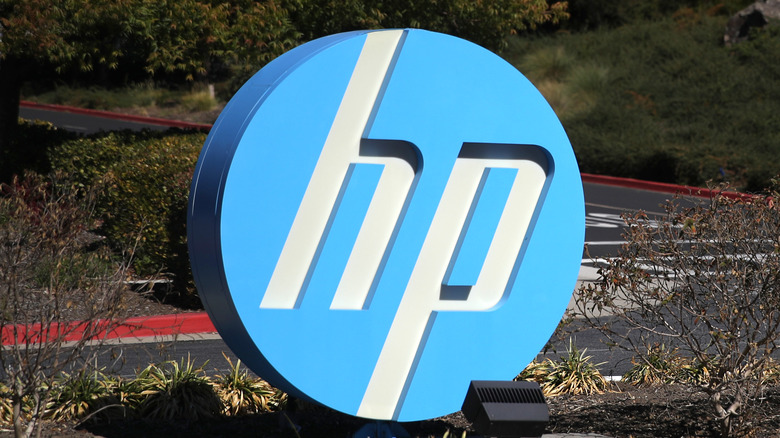HP Might Be Getting Into The Foldable Laptop Game
The foldable phone market is finally starting to pick up speed despite consumers remaining skeptical about the durability of these flexible screens. Smartphones, however, are hardly the only type of consumer gadget that can benefit from the form-changing technology that can, among other things, enable devices to fold into more compact form factors when convenient. Many companies have been exploring foldable tablet and laptop concepts, but the stakes are higher in these classes of devices compared to smartphones. That isn't stopping some PC makers like Lenovo and Asus from testing the waters, though, and it seems that HP will soon be joining them.
Foldable laptops aren't unheard of, but they are so rare that there is only one that you can actually buy right now: the Lenovo Thinkpad X1 Fold. This unique model was launched in 2020 with specs that were fine at that time, including an Intel Core i5-L16G7 processor and only 8GB of RAM. The foldable laptop sports a 13.3-inch 2048 x 1536 screen (unfolded) and it was a bold pioneer in a market that was still highly in doubt when the device launched.
Earlier this year, Asus also took a stab at the niche market, but unlike the dual-screen Asus Precog concept, the Zenbook 17 Fold OLED will be available for purchase soon. The model will have plenty of specs to go around, as well, like a larger 17.3-inch 2560 x 1920 screen (still 4:3), a current-gen Intel Core i7-1250U, and 16GB of LPDDR5 memory. When folded, the contraption will offer two 12.5-inch 1920 x 1280 screens in a tall 3:2 aspect ratio.
HP's own take on foldable laptops
According to an industry report by The Elec, HP has put in an order for large 17-inch foldable screens that surpass Asus in terms of pixel density. The flexible panels will reportedly have a 4K resolution of 3840 x 2160, putting it at a more standard 16:9 ratio. That means, however, that the laptop will fold down to two 11-inch screens with a more square-ish 2160 x 1920 resolution (that's an aspect ratio of around 4:3.59).
Unfortunately, the report is slim on other details, including the specs for the machine. It would be shocking if HP didn't equip the model with high-end hardware, however, since it will be trying to compete with the Asus Zenbook 17 Fold OLED. The company will, however, come late to the game compared to Asus, with the alleged model's launch expected later this year or in early 2023.
This leak raises the same question posed by the Lenovo Thinkpad X1 Fold and the Asus Zenbook 17 Fold OLED when they first debuted: is there really a need for foldable laptops? Or better yet, are we already at a point in time when we can trust the durability of foldable screens, especially large ones like this, with a computer that we'll rely on for our daily lives and work? Of course, we'll never really know the answers until manufacturers start making foldable laptops and consumers start buying them, so Asus and HP are taking big business risks in testing the waters, especially during these uncertain times for the PC market.

